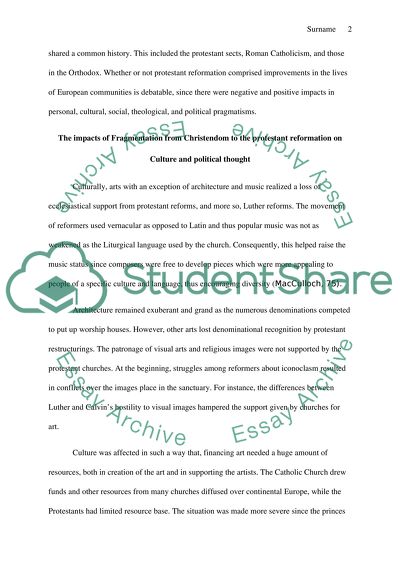Cite this document
(“Fragmentation from Christendom to the Protestant Reformation Was Not Research Paper”, n.d.)
Retrieved from https://studentshare.org/history/1449221-do-you-think-that-fragmentationfrm-christendom-to
Retrieved from https://studentshare.org/history/1449221-do-you-think-that-fragmentationfrm-christendom-to
(Fragmentation from Christendom to the Protestant Reformation Was Not Research Paper)
https://studentshare.org/history/1449221-do-you-think-that-fragmentationfrm-christendom-to.
https://studentshare.org/history/1449221-do-you-think-that-fragmentationfrm-christendom-to.
“Fragmentation from Christendom to the Protestant Reformation Was Not Research Paper”, n.d. https://studentshare.org/history/1449221-do-you-think-that-fragmentationfrm-christendom-to.


